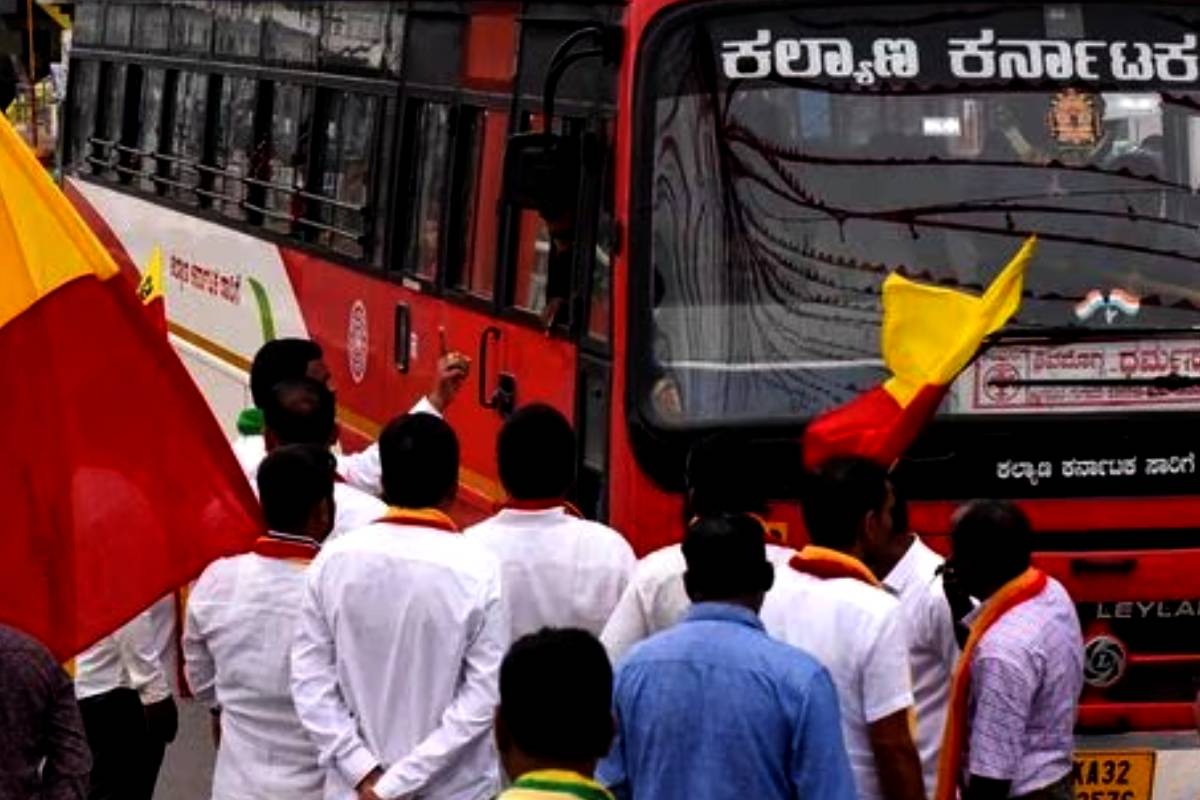NEW DELHI: The language controversy in Karnataka intensified on Wednesday as pro-Kannada groups staged violent protests across various parts of the state capital, Bengaluru, including the Kempegowda International Airport. Demonstrators, donned in yellow and red scarfs representing the colours of the Kannada flag, engaged in chaotic protests outside a hotel, tearing down English signage and storming the courtyard.
READ MORE: Watch Iranian video envisions Israeli PM’s assassination amid rising tensions
Videos circulating online depicted a man attacking an English signboard at a salon and spa, while groups in red and yellow scarfs drove past in trucks. Another video showed protesters waving red and yellow flags outside an Airtel store, with one individual defacing the sign by spraying black paint over the English signboard.
The protestors are advocating for the immediate enforcement of an order issued by the city’s civic body, which mandates that all businesses display 60 percent of their signage in Kannada. This directive followed discussions with the Karnataka Rakshana Vedike, perceived by some as a right-wing group fueling the language dispute.
Tushar Giri Nath, the Chief of Bruhat Bengaluru Mahanagara Palike (BBMP), declared that commercial establishments under the civic body’s jurisdiction must comply with this directive by February 28. Failure to do so could result in legal consequences, including the potential suspension of business licenses.
READ MORE: Heavy fog causes multiple vehicles collision on Yamuna Expressway, many injured
The language debate regained prominence in October when Chief Minister Siddaramaiah emphasized that “everyone living in this state should learn to speak Kannada.” During his previous term, Siddaramaiah advocated for the increased use of the local language, leading to the masking of Hindi names on Bengaluru metro stations with tape.
As tensions rise and protests continue, the issue of linguistic identity remains a sensitive topic in Karnataka, with both cultural and political implications. The clashes between pro-Kannada groups and the enforcement of language directives underscore the ongoing struggle for linguistic preservation and expression within the state.

